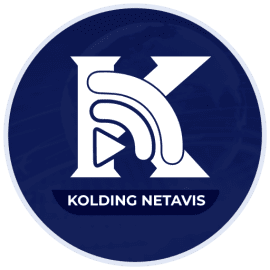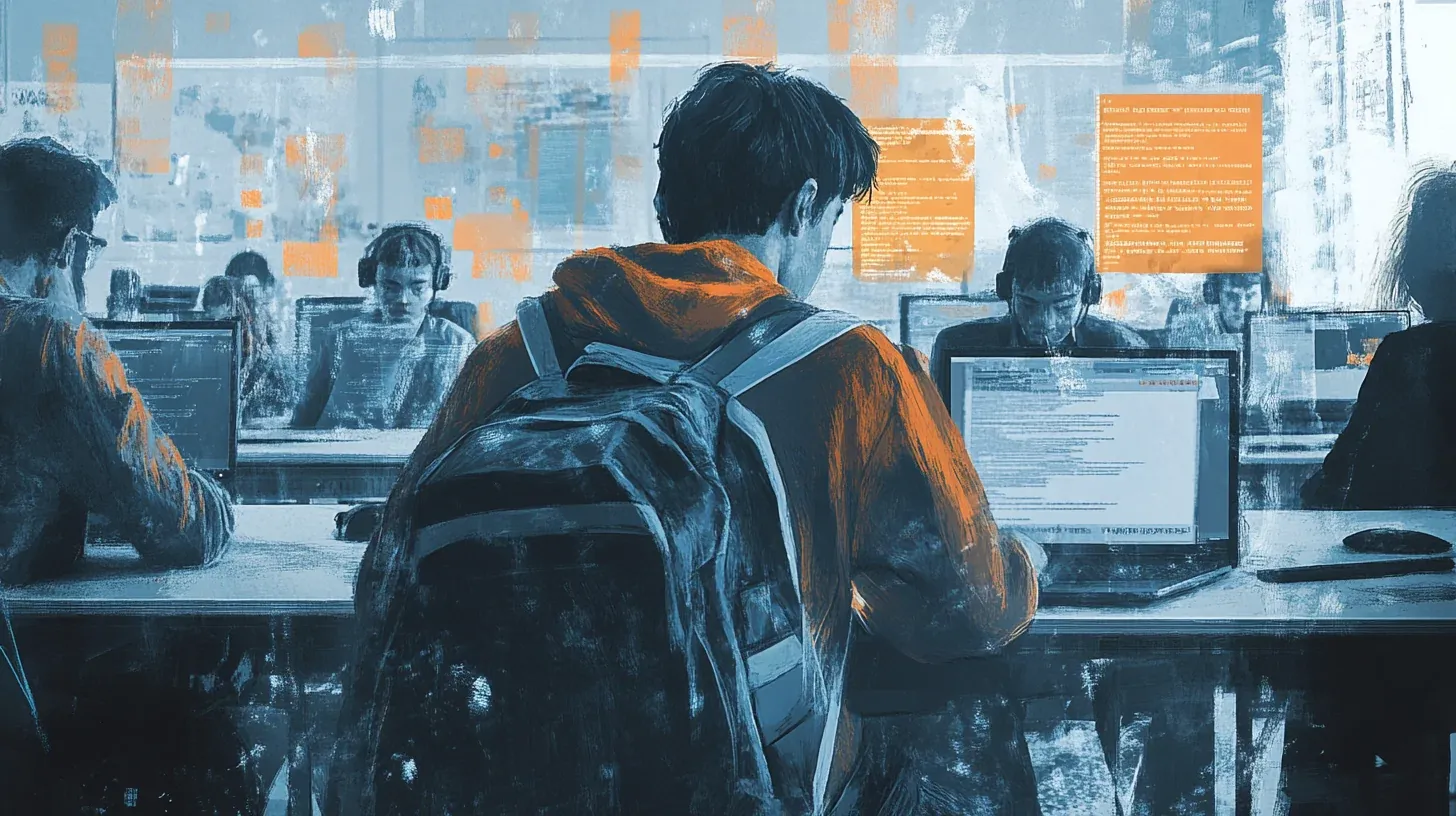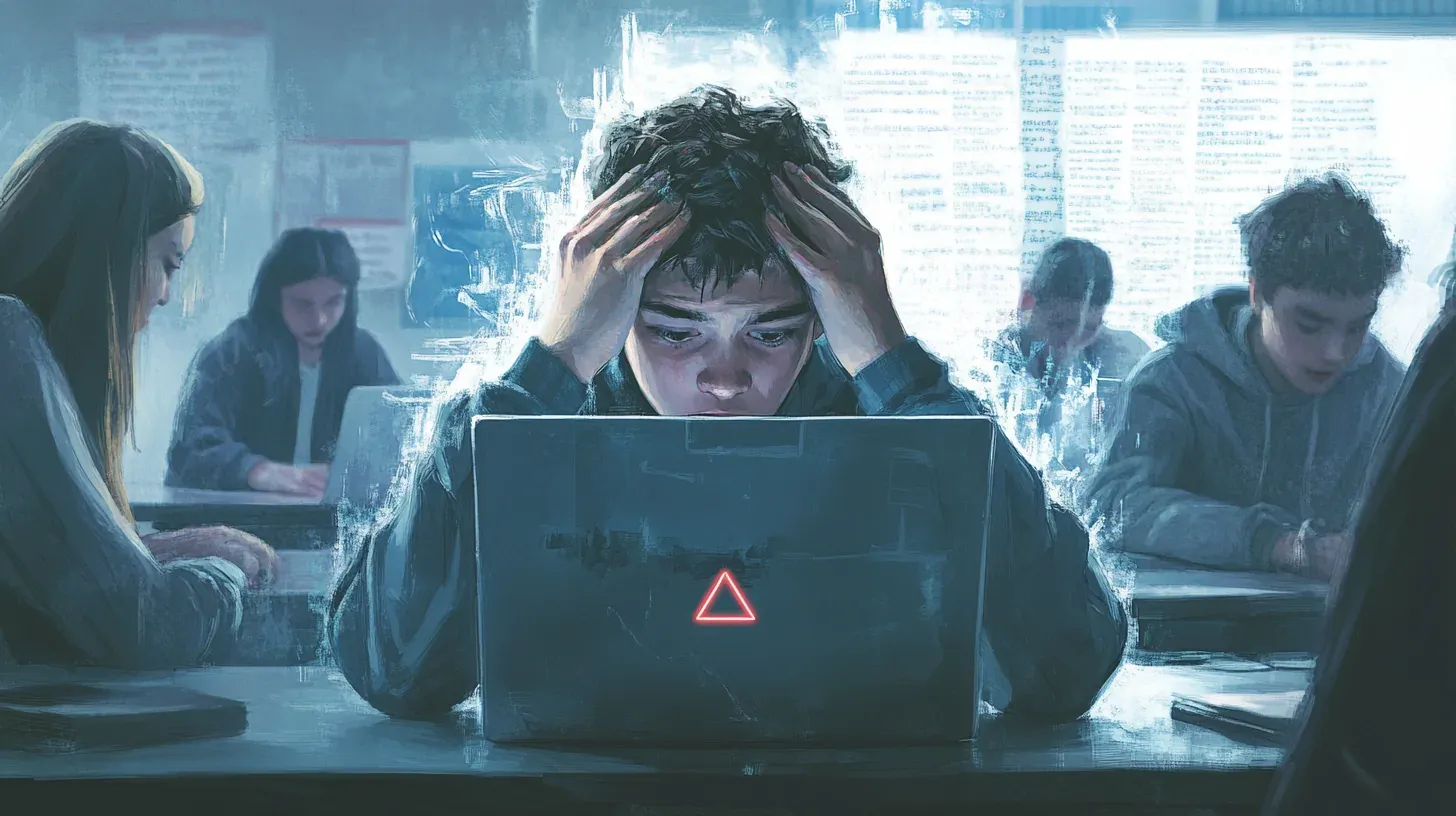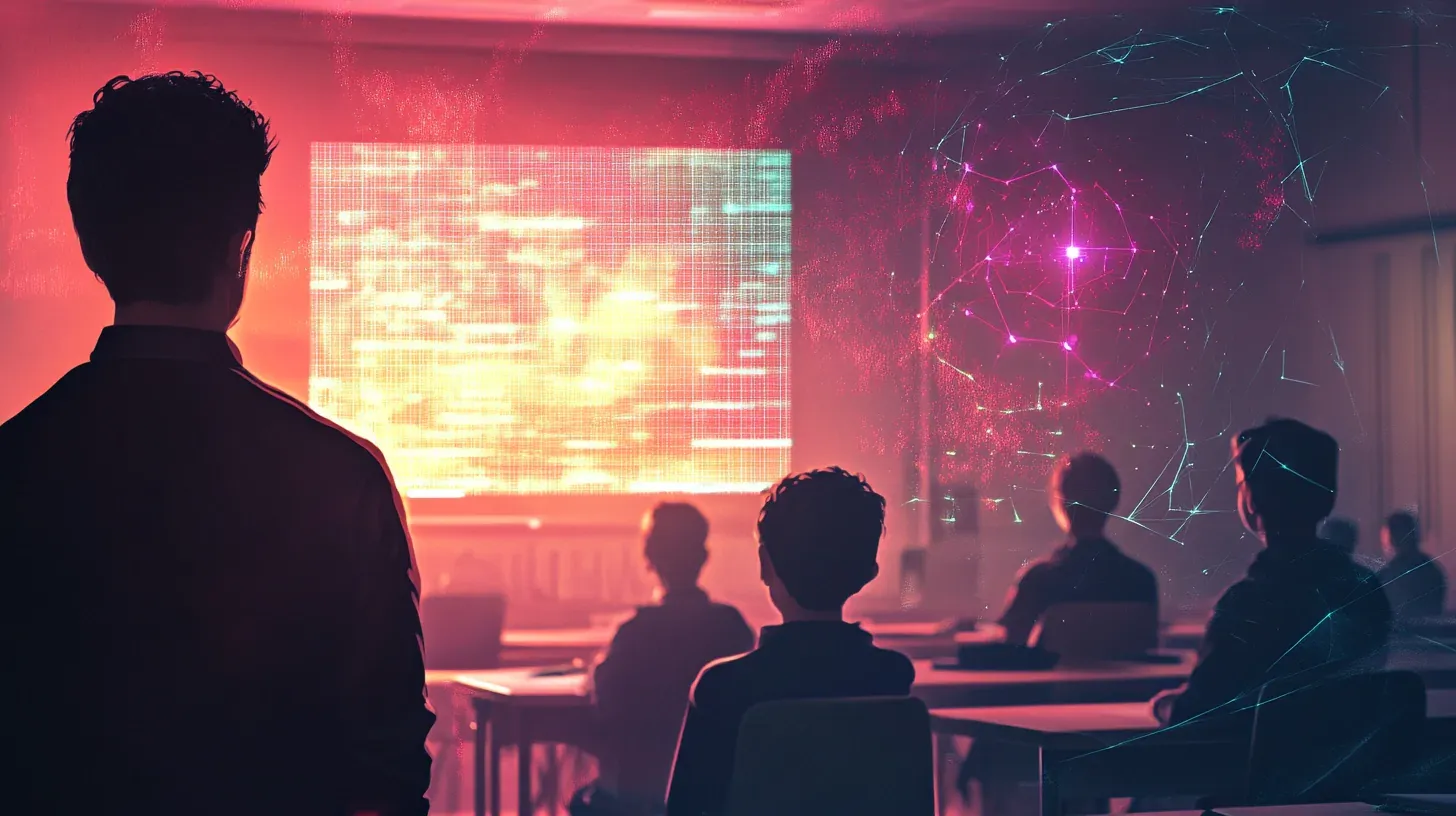The first newsletter of December is now ready, and we have selected a number of articles that provide a good insight into the opportunities and challenges we face in the education sector.
- Arild Raaheim challenges the idea of returning to analog examination formats and instead encourages rethinking assessments to combine control and learning.
- Hartmut Rosa reminds us of the importance of resonance and human relationships, even in a technological age. He advocates for a balance between the use of AI tools and relational aspects.
- Students' use of AI is about much more than laziness – it is a strategy to increase efficiency and prepare for the future job market.
- Experts at TechRadarPro believe that the potential of AI in the classroom of the future is enormous, especially when it comes to supporting teachers and students.
- The podcast AI with a Human Face explores “professional grief” and investigates how teachers and leaders can cope with the challenges and opportunities posed by AI.
- Experts at the Gymnasium Teacher Day shared valuable advice for teachers and students on how AI can be used critically and constructively in teaching – without compromising the quality of learning.
- + Other news of the week
We also have two slightly nerdy news items:
- Advanced AI models can leak private data through a newly discovered vulnerability in their architecture, reveal researchers from Google DeepMind.
- Teuken-7B sets a new standard for multilingual AI models in Europe.
Happy reading and Merry December 2nd!
Back to Pen and Paper – or Forward with AI?
Arild Raaheim, professor of university pedagogy at the University of Bergen, questions whether it makes sense to return to traditional examination formats like pen and paper in response to the proliferation of AI tools such as ChatGPT. He criticizes initiatives that focus more on control than on learning, emphasizing that assessment methods play a crucial role in how and what students learn.
Arild Raaheim proposes three strategies for future assessment methods:
- Conventional Strategy
Focus on control and traditional examination formats, which primarily measure knowledge (summative assessment). - Semi-Conventional Strategy
A combination of control and learning, where AI is integrated as part of the assessment, and where students reflect on their use of technology. - Radical Strategy
Focus on learning through students' active participation in developing assessment criteria and evaluating themselves and others (student-involved assessment).
Arild Raaheim believes that critical reflection is best developed through ownership and engagement in the learning process. He therefore encourages considering AI as a resource that can support writing processes and develop critical thinking, rather than as a threat to the education system.

Hartmut Rosa’s Perspectives on the Role of Technology in Education
The German sociologist Hartmut Rosa writes that the constant acceleration in modern societies has led to alienation and loss of meaning. He uses the concept of "resonance" as a counterbalance, where relationships to the world create meaning and engagement.
In an educational context, resonance involves creating meaningful connections between the teacher, students, and the content. The teacher should act as a role model and convey genuine enthusiasm for the subject to promote resonance. This requires safe learning environments where students can be challenged and develop self-efficacy and agency through moments of realization rather than just striving for measurable results like grades.
He warns against overconsumption of technology and generative AI, as it can simulate resonance without creating real transformation or learning. Schools should prioritize physical presence and work towards a balance between the opportunities that technology offers and the relational qualities that promote resonance. To achieve this, the engagement of teachers and their ability to create safe and curiosity-based learning environments is crucial.

Students' Use of AI is About Strategy, Not Laziness
A study among 8,028 university students shows that 85% use generative AI to complete tasks faster and easier. Although this may be perceived as laziness, researchers emphasize that it rather reflects a strategic approach to time management. Students use AI for routine tasks that do not require human skills, as well as to overcome writer’s block and improve the quality of their work.
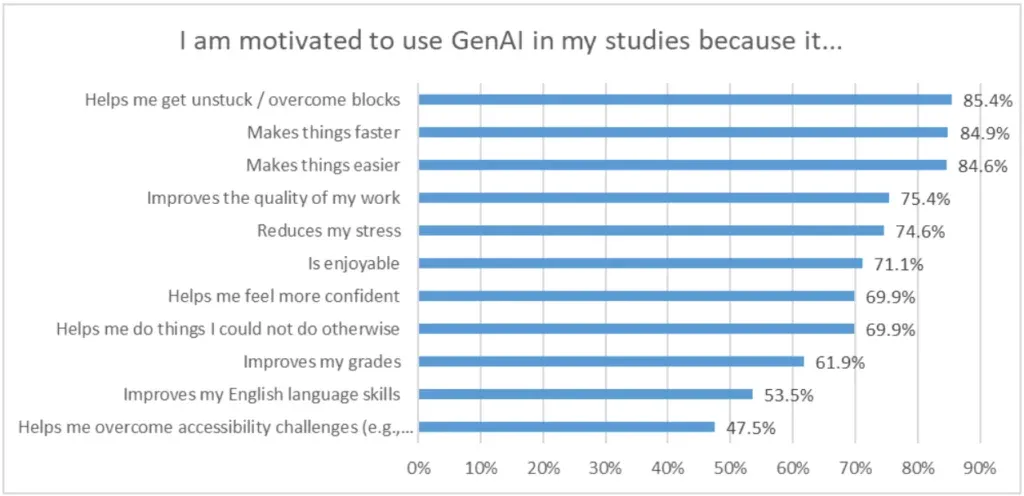
Moreover, AI helps students expand their capabilities; 70% report that the technology enables them to complete tasks they otherwise could not manage. For 48%, AI contributes to overcoming accessibility barriers. However, students are cautious about AI’s limitations: 97% are aware that AI can produce incorrect answers, and 93% still wish to complete tasks on their own to promote deep learning.
Many respondents see AI as a key skill in a world where skills like effective prompting can become crucial in the job market. Researchers suggest that universities integrate AI literacy into their teaching to ensure that both students and teachers learn to use the technology productively and ethically. This will not only support efficiency and quality improvement in studies but also better equip students for the future job market.

AI's Role in the Future Classroom: More Support for Teachers and Students
An article from TechRadarPro’s Expert Insights channel describes how AI is beginning to impact the field of education. The technology is used to create personalized learning experiences, provide instant feedback, and reduce administrative tasks for teachers. This allows teachers to focus more on the creative and relational aspects of their work. Research from Stanford also shows that AI can improve both teacher and student satisfaction by providing targeted insights and support.
Some areas touched on in the article are that AI enhances teachers’ creativity by taking over routine tasks such as creating quizzes and planning complex teaching sequences. The article emphasizes that AI acts as a support for teachers rather than a replacement. To achieve the full potential of the technology, it is recommended to provide teachers with access to AI tools and the necessary training.
The article is published as part of TechRadarPro's Expert Insights channel, which shares knowledge from leading experts in technology.

Podcast: When Educators Meet New Technology
In the podcast AI with a Human Face, hosted by Henrik Dresbøll, the concept of “professional grief” – a sense of loss and frustration that educators may experience when AI challenges their professional identity – is discussed. The guest, Claus Scheuer-Larsen, a lecturer at Odense Technical Gymnasium, shares his experiences and proposes solutions on how teachers can adapt to technological developments.
The podcast highlights how technologies like ChatGPT can both create uncertainty and simultaneously open new opportunities for learning. Claus Scheuer-Larsen suggests that teaching focus shifts from product to process, so that students learn to analyze and reflect critically on AI's responses. At the same time, the crucial role of leadership in creating clear frameworks, recognizing teachers' challenges, and allowing space for experimentation is emphasized.
Listen below:
Gymnasium Teachers Seek Insights into AI's Role in Education
At Gymnasium Teacher Day 2024 in Aalborg, valuable advice was shared on how gymnasium teachers and students can navigate an educational world where AI is becoming increasingly significant. 200 teachers participated to gain insights into AI's opportunities and challenges and specific recommendations from experts at Aalborg University.
Lecturer Stine Ejsing-Duun, lecturer Kristine Bundgaard, and lecturer Andreas Møgelmose from Aalborg University have concurrently published four recommendations for gymnasium teachers and students.
Four Recommendations for Gymnasium Teachers:
- The students' ability to critically engage with AI and its impact on their learning depends on your own curiosity about the technology and engaging in dialogue with your students about it.
- Experiment with the technology yourself and investigate what pedagogical problems it can solve and which academic areas it can open up in new ways.
- Make sure to discuss with students both their learning, the consequences of replacing thinking with generative AI, and how generative AI can support their learning process.
- Ask yourself which competencies will be important in the future. Some tasks can beneficially be left to technologies. Take responsibility for ensuring that generative AI is used in both didactic and pedagogical contexts.
Four Recommendations for Gymnasium Students:
- Use AI as a sounding board for brainstorming and get help creating structure, etc., but remember that it is always you who must evaluate its output.
- Just because an AI chatbot writes well does not necessarily mean that the content is correct.
- Learning occurs, among other things, through your own writing, so you miss valuable learning if you only use AI as a shortcut.
- Consider what it means for your academic confidence if you do not solve the tasks yourself. Instead, be curious about how generative AI can enhance your learning.
These recommendations reflect the overarching goal of using AI as a tool for learning without replacing essential learning processes.

Other News of the Week
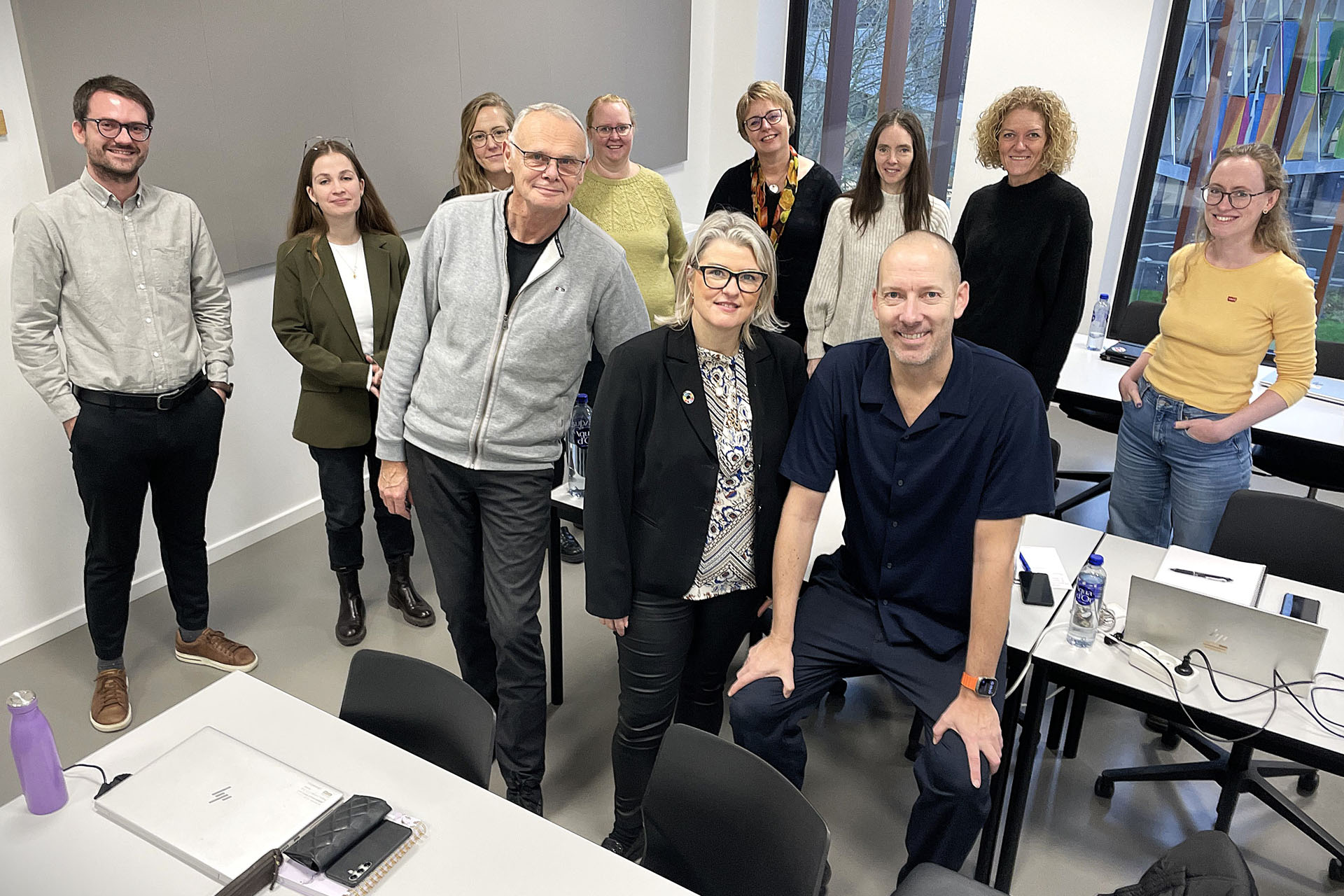


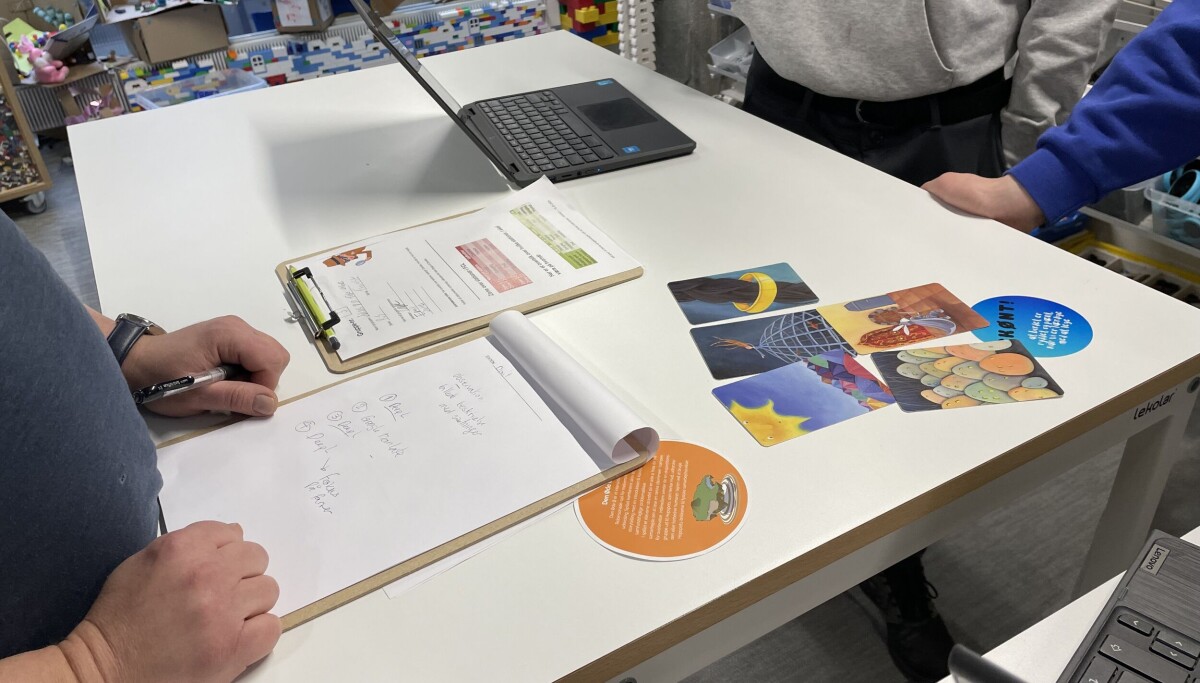
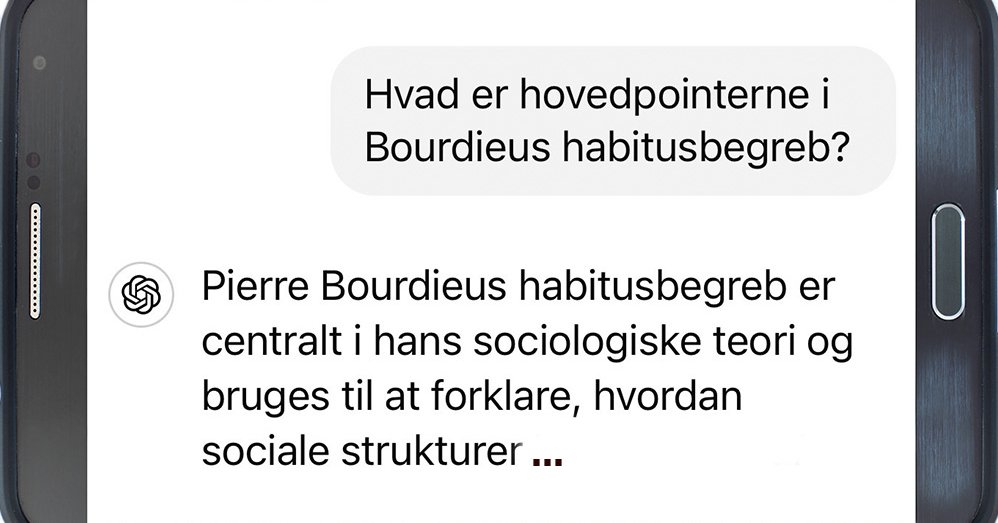


Nerd Corner
We stumbled upon a couple of articles that are somewhat interesting when discussing generative AI, but not necessarily in connection with education.
Researchers Reveal Security Risk in Advanced AI Models
New research from Google DeepMind shows that advanced AI models based on Mixture-of-Experts (MoE) architecture have a serious security flaw. By manipulating how the model distributes data, an attacker can extract private user data if this data is processed in the same data packet as the attacker’s own queries. The method, dubbed "MoE Tiebreak Leakage," can reveal data bit by bit using strategically placed inputs.
The researchers recommend ensuring that data remains separated in data packets and that randomness is added to the models to make attacks more difficult. The study underscores the importance of prioritizing security in AI systems, especially when they are used by many different users simultaneously.
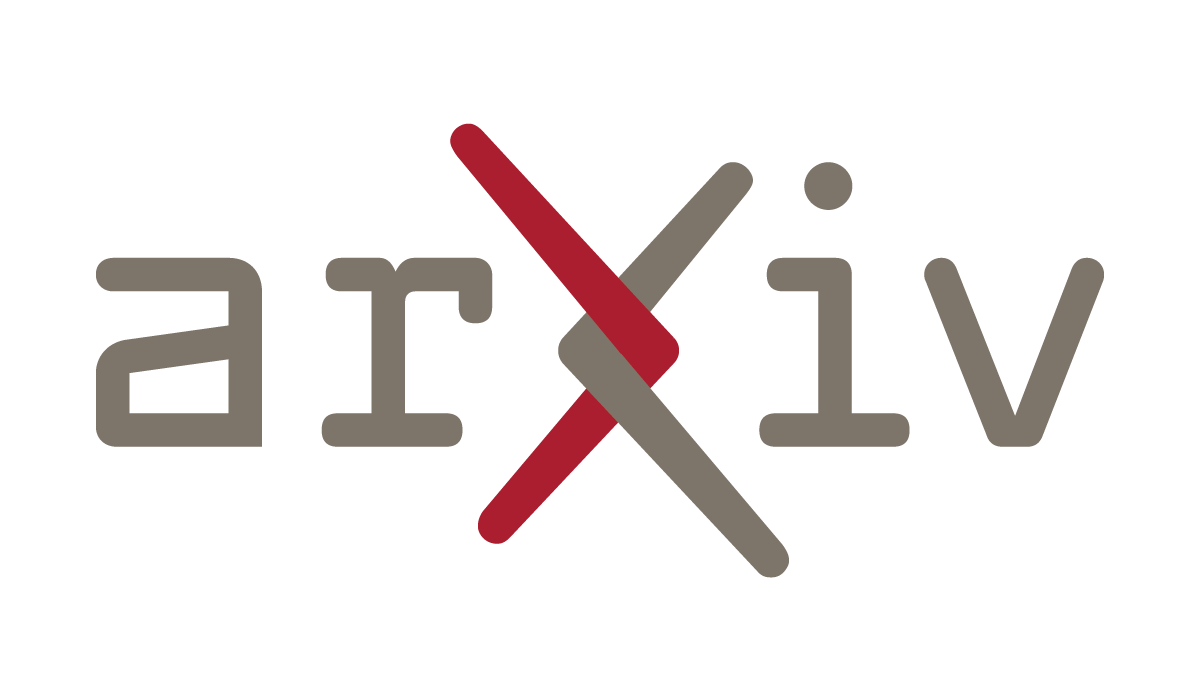
Teuken-7B: A New Multilingual AI Model Designed for Europe
Teuken-7B is an advanced AI model developed by OpenGPT-X that focuses on Europe's 24 official languages. Unlike other language models that are often dominated by English, Teuken-7B has been trained on over 50% non-English data to reflect Europe's linguistic and cultural diversity. The model employs a specially developed multilingual tokenizer that reduces fragmentation and makes it more efficient to process text in European languages.
Teuken-7B has been evaluated on a number of benchmarks, including ARC and HellaSwag, performing competitively compared to other models with 7-8 billion parameters. The model excels in consistent performance across languages, offering a robust solution to support Europe's linguistic diversity.
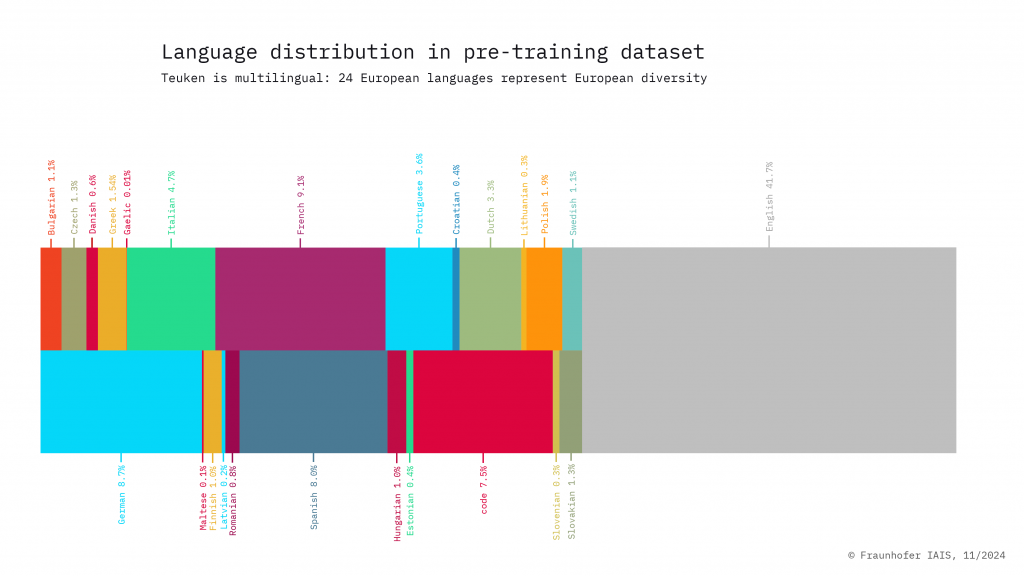

This article has been machine-translated into English. Therefore, there may be nuances or errors in the content. The Danish version is always up-to-date and accurate.





